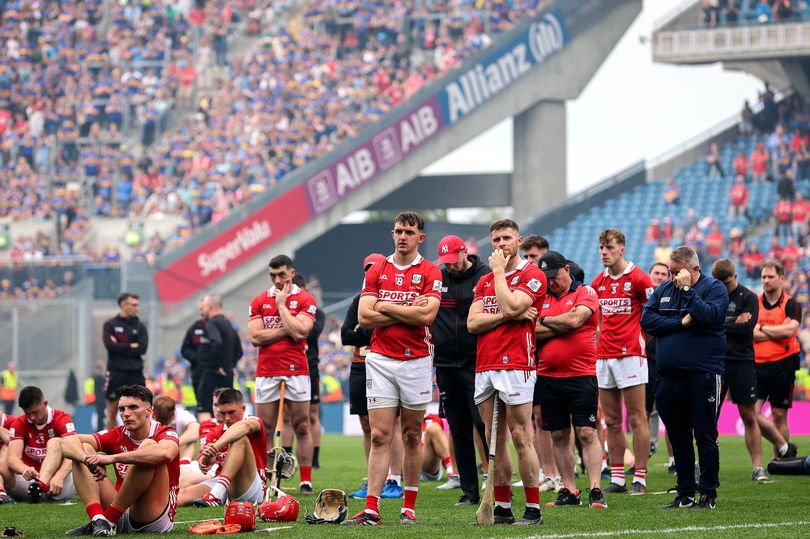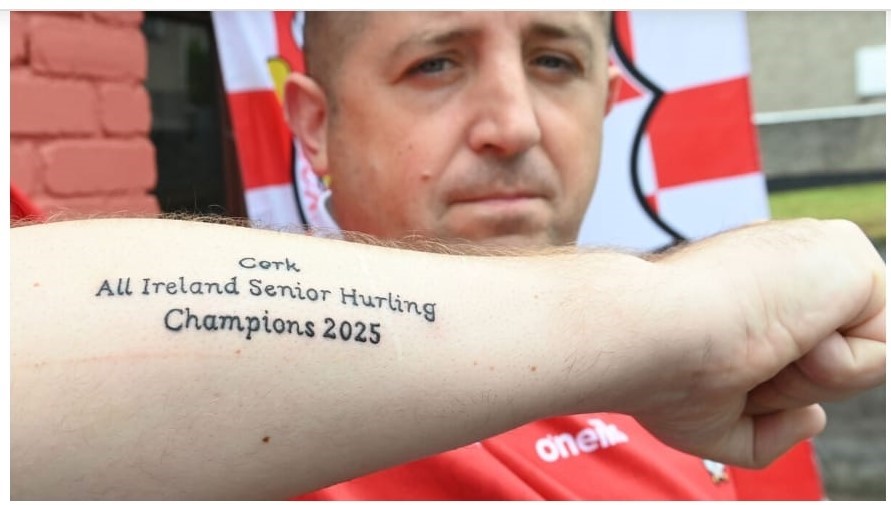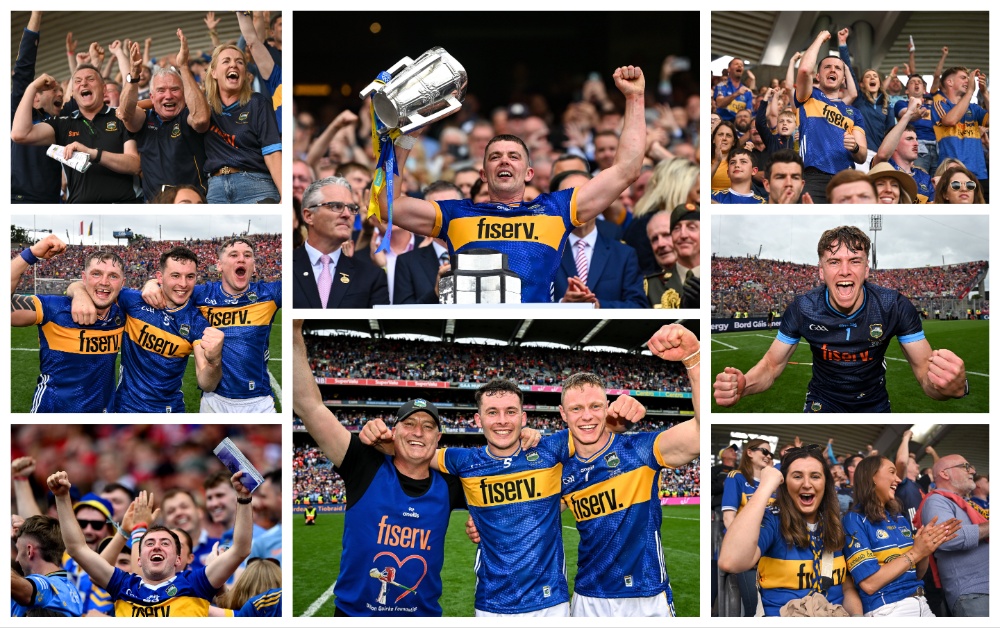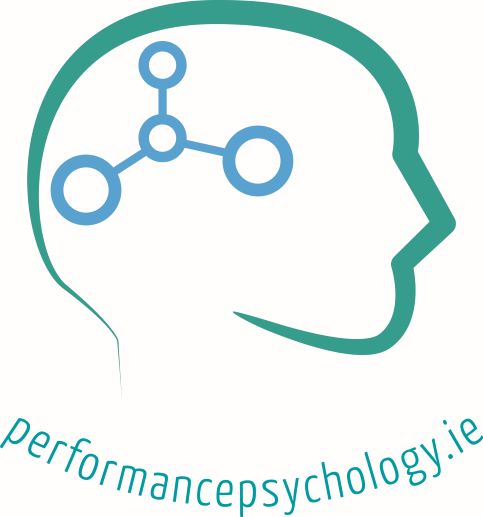Under Pressure - Cork Senior Hurler's Collapse

Freddie Mercury and Queen sang the line 'Pressure, Pushing down on me, Pressing down on you, No man ask for, Under pressure, That burns a building down, Splits a family in two'.
Some of the Cork hurling team may have felt the building was burning down around them they succumbed to a second half Tipperary onslaught during the 2025 All-Ireland senior hurling final. Only time will tell if the family got split in two.
Dealing With Favourite's Tag
Let's face it, Cork were red hot favourites. The bookies had them at 1/4 while their opposition, Tipperary, were placed at 13/4 in the days leading into the final - crazy odds in a two horse race. One prominent bookmaker had already paid out on Cork winning the All-Ireland after they won the National Hurling League in April. There was massive expectation and that brought massive pressure on the players. It didn't help that there was a 20 year gap since the last All-Ireland success and that the whole county was engrossed in them finally ending their famine.
Their Munster win over Limerick and the surprise elimination of Limerick at the quarter final stage was a factor, but so too was the demolition job they did on an understrength Dublin team in the semi-final, scoring 7 goals in the process. Everything about this final leaned towards Cork. The media gave Tipperary little chance while the Cork Kingfishr song Killeagh was for some reason played as the theme tune to the final over our national airwaves. The Cork supporters were hugely expectant and travelled to the final in their droves, while one Cork supporter was even reported to have confirmed Cork's win with a tattoo stating as much on his arm - before the game. Nobody gave any chance to the underdogs, Tipperary. They were written off as also ran's before the ball was thrown in! How the Tipperary players must have loved that.

Early in the game, Cork found some rythm but Tipperary were staying in touch and could have been a lot closer at the break, but for a disallowed goal and a number of wides. After half time, Cork stalwart Patrick Horgan missed a reasonably simple free by his standards. From there, Tipperary took over and when Tipperary took the lead with a goal from John McGrath, who was first to react after an error from the Cork goalkeeper, the Tipperary fans were ecstatic while the 55,000 Cork fans grew silent. Every flick and turnover fell in to Tipperary hands as their manic work-rate and clever tactical ploys suffocated Cork into submission. It was death by a thousand cuts and the game was over a long way out.
Everything from there fell in Tipperary's favour. The Tipperary chests were out while the Cork lads shrunk. Poor game management, decision making and inability to stay calm and rational under pressure cost them the game and their chance to fulfill their county's expectations. Tipperary were first to every 50:50 contest and dominated from there. Cork did hit the crossbar and post a couple of times but on each occasion it was the Tipperary men that were first to react.
Cork capitulated to a a 21 point deficet in the second half - a collapse of this scale unseen before in such a prestigious occasion.
We have seen where huge expectations - often exaggerated by local media - have a major negative impact on performance in other sports too. The English soccer team failed to meet expectations at numerous championships – most notably the 2014 world cup as the media frenzy set huge hysteria and expectations around them before they finished bottom of their group. Leinster Rugby, wearing the favourites tag have had to deal with a significant emotional build up within their home city prior to URC and Champions Cup Rugby finals in the recent past. Most will also remember the collapse of the Brazil soccer team at their home world cup in 2014, losing 7-1 to Germany. I personally experienced a very similar scenario as a player in a club final many years ago - strong favourites and big expectations, leading by 6 points at half time and no matter what we did in second half, we couldn't halt the momentum of the underdogs and came out second best in a gross under-performance.
Solutions?
All Black sport psychologist Gilbert Enoka suggests that the brain delivers three types of response when challenged in a stressful environment – instinct, emotional and thought response. The body always does what the mind tells it to do and he felt that this may be the root of the problem when a team collapses when expectation is highest and he helped the All-Blacks address similar issues to win the Rugby World Rugby Cup in 2011
Emotional and instinctive decisions can be somewhat erratic and often incorrect ones, particularly when under pressure. Pat Ryan may have needed needed his players to steer Cork towards decisions that are thought induced and made by clear and rational minds that aren't overwhelmed by the stress and pressure of the occasion, as the pressure ratcheted up in the final. For that to happen he needed the Cork team to be calm and rational under pressure and problem solve tactically as the pressure rose.
Had they the preparation work done for this? Had they layered up these decision making skills under the duress of pressure. They certainly hadn't the competition exposure that Tipperary had on the run in. Cork came through a tough Munster Championship but had faltered badly already in 2025 against Clare (2nd half) and Limerick in Munster. They went without a meaningful competitive game between the Munster and All-Ireland final, albeit they hammered an under-strength Dublin in the semi-final. Tipperary in comparison, had to beat Clare, Waterford, Galway and Kilkenny in a row - all of which were knock-out matches when they played them. In essence, Tipperary were well road tested in a way that Cork were not!
These games would have seriously sharpened the minds of the Tipperary management. In contrast, had Cork's easier run sharpened the Cork management in similar ways? There was much made post game of Cork management's inability to address the problems as they arose. Had they the preparation of 'what if' scenarios done as a management group to deal with such scenarios should they arise as they did? Only those involved will know.
In 2011 the All-Blacks hadn't won a World Cup since 1987. The pressure was mounting for the rugby aristocrats as the All-Blacks management looked to address the negative impact of expectation, by building skills in the players to alleviate anxiety and performance stress under pressure. They brought in extra psychological support to help players manage their minds and decision making when under pressure. Gazing Performance System's work with high end business organisations such as Xerox, UPS and Avis in handling pressure and improving performance. Gazing Performance began working with players by helping them understand match day nerves. They developed skills in players to help them control attention, alleviate anxiety in pressure situations enabling players to transition into a state of mind where they were clear, positive and on task. With the help of Gazing Performance Systems, they described the All-Blacks to be H.O.T when under pressure in tight games.
- Heated
- Over-whelmed
- Tense
Other unhelpful characteristics of having a "Red Head" might be
- Tight
- inhibited
- results oriented
- anxious
- aggressive
- over-compensating
- desperate
They required the players to have a "Blue Head" – one of calmness that can maintain clarity of consciousness, situational awareness, accurate analysis and have the ability to make good decisions under pressure. Typically, a "Blue Head" would have the following characteristics.
- Loose
- Expressive
- In the Moment
- Calm
- Clear
- Accurate
- On task
Such a state of consciousness allows you to see the bigger picture, remain on task, and attend to relevant stimuli. Put simply, it allows the players to process the information at hand and make correct decisions consistently, and particularly in pressure situations. Specifically, they are enabled to have the ability to think clearly under pressure to make optimal decisions in following situations.
It may have enabled the Cork players to see a positive overloads ahead or to left or right (4v3 or 3v2 situation). Could they read the play as they exited their defence with the ball? Should they run ball through the lines to avoid a sweeper or go long to full forward line positions? Should they run good support lines to free up ball striker to get good quality ball to forwards or clear shot at goals from distance. Where can the forwards win the ball - high or low - or ball to space and movement? Should they shoot from space further out or can we get midfielders and half forward line to run at opposition to draw frees. How can they best execute the puck-outs? Is the forward line dominant enough to strike long? Is striking long playing into opposition hands? Is there other options and if not, can they help their team-mates to problem solve on the go? Such decisions are made on a constant basis in hurling and such decisions often influence the result.
Therefore having the ability to take the optimal option can be the deciding factor between winning and losing. Tipperary certainly demonstrated the capacity to be cool, calm and collected under pressure as they optimised their in game decision making and as a result, annihilated Cork by 3-14 to 2 points in the second half.

In this regard, some players need to be more psyched down than psyched up for a performance so that they can maintain appropriate clarity of consciousness for optimal decision making. Without realising, the natural charge of the environment of competitive sport (stadium, fans & noise) can put players in the H.O.T zone where they are unable to manage their thoughts. Those in that negative zone tend to go with an instinctive or emotional response as opposed to a rational thought induced response which very often is the wrong decision.
James Kerr in his book about the All-Blacks "Legacy" allays that former All-Black out half Andrew Mehrtens likens it to "striking the balance between being lucid and being motivated. There comes a point where you become too hyped up and you lose your lucidity and ability to read a situation and make a good decision. "For example, with only minutes remaining in a match where your team are expected to win, your team are in an attacking position on the pitch in possession of the ball but losing by two points. Your thought process might be, "crap, we have to win this game, we are in trouble here", as opposed to a strategic rational thought oriented response. This type of thought can keep you calm, allow you to see the big picture and make optimal decisions to help the team create a score to win.
In such a contact / collision sport such as hurling, the best players and teams must play on the edge of the rules. However, numerous athletes struggle to stay on the right side of that edge in intense pressure situations. Their "controlled aggression" can become no longer 'controlled' - often due to frustration and their minds being flustered due to inability to cope with the pressure. When this happens, athlete's often overcook their aggression levels (H.O.T.), lose their thought clarity resulting in erratic performance or behaviour leaving them open to ill-discipline that may have further implications for the team or performance. Is this what happened to the Cork full back as John McGrath encroached on goal to win a penalty?
All-Black sport psychologist, Enoka told Real Estate Business Magazine that it is crazy the way some people think, "because if you want to build up strength, you go to the gym three times a week and work on your core strength. It just seems that if you want to develop your ability to concentrate and focus and be flexible in what you do from a mental perspective, wouldn't you apply the same approach?"
Prior to the 2011 world cup, Enoka, with Gazing Performance built layers of pressure allowing the player's minds to adapt and acclimatize to the pressure. Accordingly, All-Black brains adjusted and developed clarity with regard to accuracy, automaticity of execution and situational awareness in a similar way to which a Math's teacher might build layered schema in his students. When they were finished, players felt in control of their minds and were ready to execute their skills with appropriate tactical awareness.
Mental strategies were first put in place to firstly calm the mind. Ex All-Black captain Richie McCaw in his book described how they were helped to maintain such calm in his book 'The Real McCaw'. Like meditation, he described how he they were helped to reconnect during breaks in play at opportune times. "Breathing slowly and deliberately…..shift your attention to something external – the ground, or your feet or the ball at hand or the grandstand………use deep breaths and key words to get out of your own head, get yourself 'back in the present', regain your situational awareness". These techniques help the body and mind to centre, relax and maintain appropriate thought activation. Other mental strategies or what sport psychologists might call "attentional focus cues" or "triggers" were implemented by Enoka and Gazing Performance also. These cues gave players a map of what they should be doing generally in different scenarios.
It enabled the All-Blacks to navigate their way through a game while enabling activation of appropriate thought processes and clarity of mind and purpose. While we don't fully know the actual cues implemented for 2011, Anton Oliver – an All Black at the world cup in 2007 gave some insight into what may have been involved in James Kerr' book "Legacy". Remembering the "cues" from 2007, he said "I can still remember them……….TQB, top quality ball. OTG, over the gainline. KBA, keep ball alive. LQB, lightening quick ball. You get those four things going, we're fine………that gave us the template to figure out the game".
Would Cork have benefited from such a skill-set in the last couple of losing finals - a hurling version to keep them on track mentally throughout the game? Would it have prevented the goalkeeping errors that were major catalysts for Tipperary's momentum. Would it have enabled Patrick Horgan to nail that free early in second half. You might remember he missed a similar free early in first half of 2024 All-Ireland that was a catalyst for Clare's comeback after Cork burst into an early 8 point lead.
It is quite interesting that in Ronan O'Gara's thirst for development as a coach, he went to New Zealand and spent a few years as assistant coach to Scott Robertson at Richie McCaw's old Christchurch club, Crusaders. It appears that he learned a lot about how they empower players to deal with pressure down there and it is notable that he has led La Rochelle to three European cup finals in a row, winning the last two – something the club never achieved previously. Man of the match Greg Aldritt mentioned after the game that it was the players that took ownership in the dressing room at half time. It is likely that this is a strategic ploy on O'Gara's part to empower his players to take ownership of problem solving for themselves so that when push comes to shove in the dying moments, that they have both the resilience, desire and problem solving skills to execute under pressure.
Maybe Cork had all these plans in place too but just failed to execute them..... or maybe they will learn from their mistakes. Rumours have also circulated around issues that may have arose among Cork team during course of half time break. If there is truth to these, then there may be whole other explanation. Only those that were there will know.
Unleash Your Potential
Keith Begley is a member of the Chartered Association of Sport and Exercise Sciences (CASES) and an Accredited Performance Psychology Consultant with the Irish Sport and Exercise Science Association ISESA.
